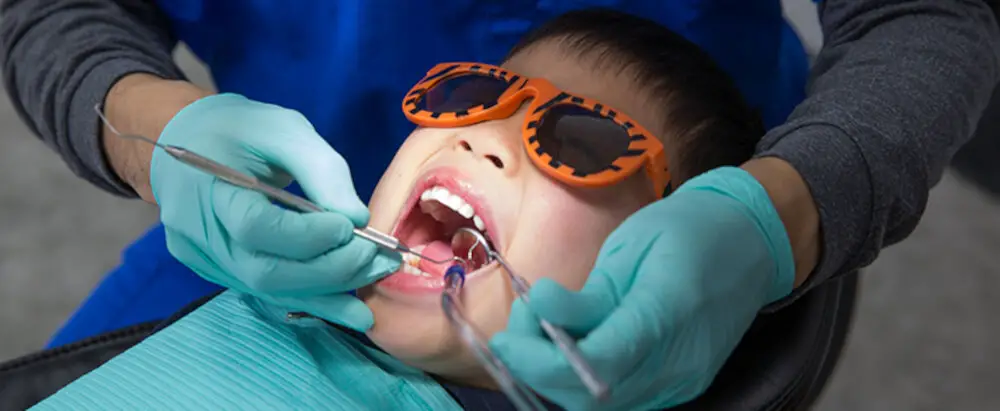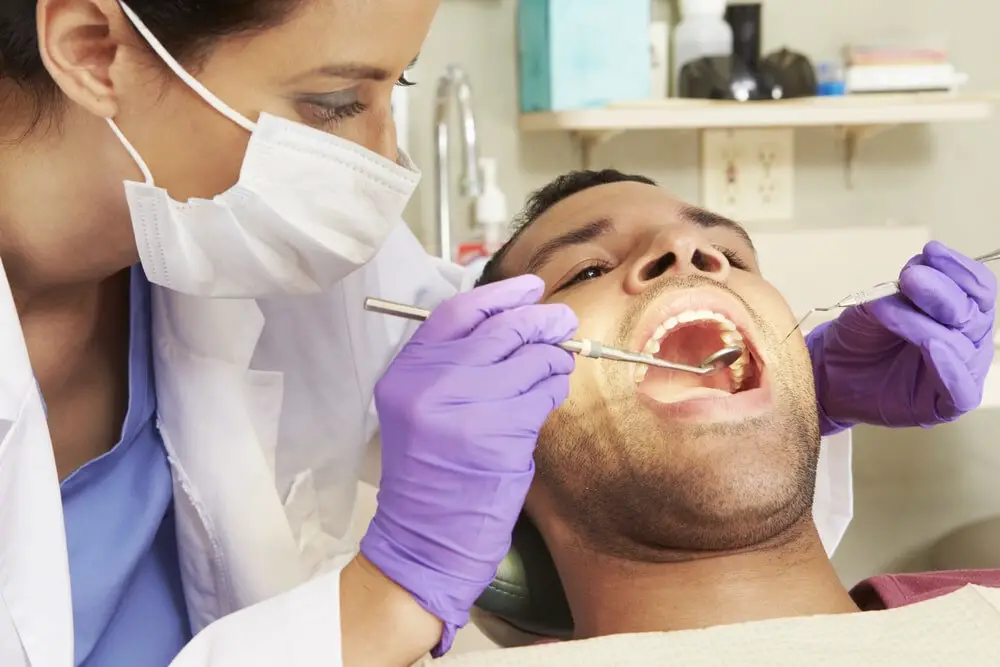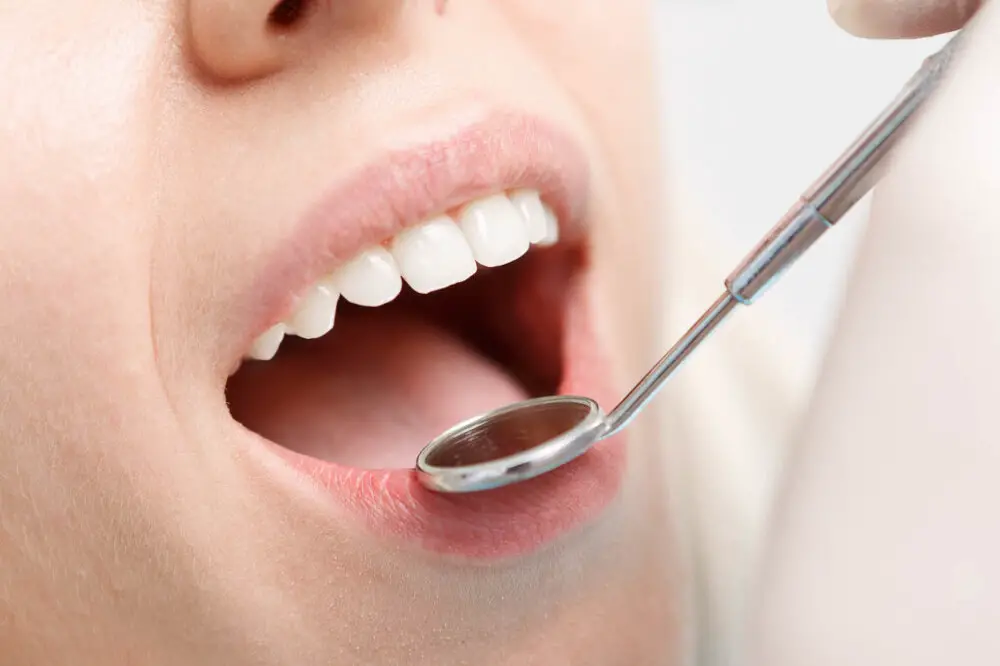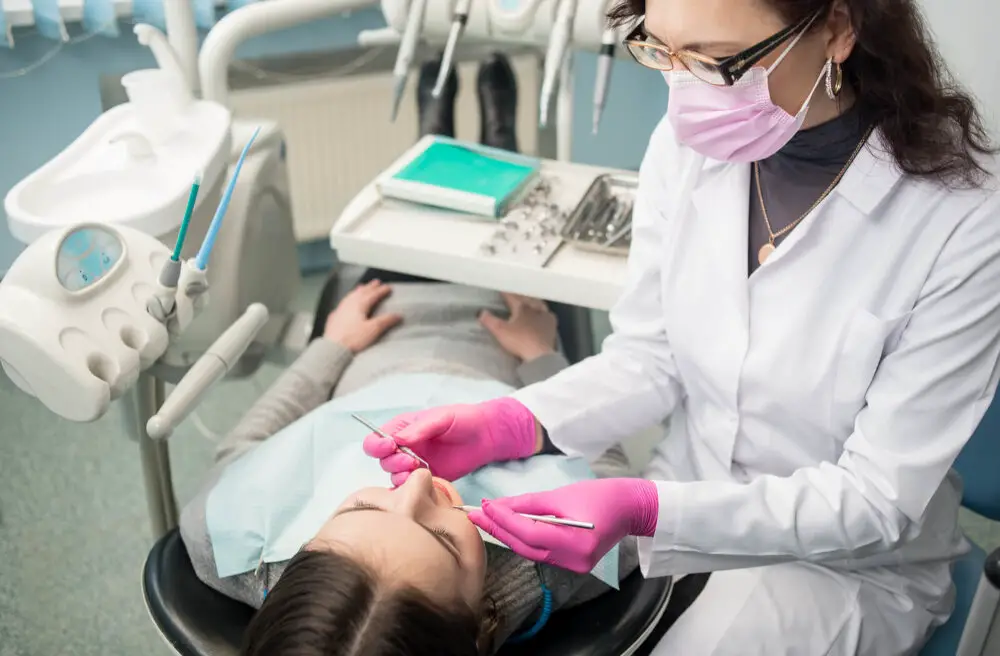Why Do Dogs Grind Their Teeth? Understanding the Causes and Solutions

Dogs are undoubtedly one of the most popular pets in the world. They are loyal, affectionate, and playful companions that offer unconditional love to their owners. However, as much as we love our furry friends, they can sometimes exhibit strange behaviors that can be concerning. One such behavior is teeth grinding, which can be alarming for pet owners. Understanding why dogs grind their teeth and the potential solutions can help prevent further damage to their teeth and overall health. Teeth grinding, also known as bruxism, is a common behavior in dogs that can be caused by various factors. Some of the reasons for teeth grinding include stress, anxiety, pain, or dental issues. While teeth grinding is more common in certain breeds, it can affect any dog regardless of their age, breed, or gender. As a responsible pet owner, it’s important to recognize the signs of teeth grinding and take the necessary steps to address the underlying cause. In this article, we’ll explore the causes of teeth grinding in dogs and the potential solutions to help prevent this behavior from becoming a problem for your furry friend.
Teeth grinding, also known as bruxism, is a common problem experienced by dogs. It is characterized by the clenching and grinding of teeth, often accompanied by a distinctive sound. There are several reasons why dogs may grind their teeth, including stress, anxiety, pain, and dental problems. Dogs that are experiencing discomfort in their mouth, such as a toothache or gum disease, may grind their teeth as a way of alleviating the pain. Additionally, dogs that are stressed or anxious may grind their teeth as a way of releasing tension. While occasional teeth grinding is not usually cause for concern, chronic or excessive grinding can cause damage to the teeth and jaw, and should be addressed by a veterinarian.
Understanding the causes and solutions of why dogs grind their teeth is crucial for any responsible pet owner. Teeth grinding can be a sign of underlying health issues, such as dental problems or anxiety, that require prompt attention. Ignoring this behavior can lead to serious health complications and discomfort for the dog. It is imperative to identify the root cause of teeth grinding and address it accordingly. This may involve a visit to the veterinarian, behavioral training, or providing the dog with appropriate toys to chew on. By taking proactive measures, pet owners can improve the quality of life for their furry companions and ensure their long-term health and happiness.
Dental Issues

Dental issues in dogs are a common problem that can arise due to various reasons. One of the most common dental issues seen in dogs is teeth grinding, which can be a result of anxiety, stress, pain, or a misaligned bite. Dogs may grind their teeth when they are in pain or discomfort, and it can also be a sign of dental disease. Gum disease, tooth decay, or an abscessed tooth can cause pain in the mouth, leading to teeth grinding. Regular dental check-ups and oral hygiene practices, such as brushing your dog’s teeth, can help prevent dental issues in dogs. Another dental issue in dogs is periodontal disease. It is a bacterial infection that affects the gums and teeth, leading to tooth loss and other health complications. The primary cause of periodontal disease is poor oral hygiene, leading to the buildup of plaque and tartar on the teeth. Some breeds of dogs are more prone to periodontal disease than others, and it is essential to maintain good oral hygiene practices to prevent the disease. Regular brushing, dental cleanings, and providing dental chews or toys can help maintain good oral health in dogs and prevent dental issues from arising. If you notice any dental issues in your dog, such as teeth grinding or bad breath, it is best to consult a veterinarian for treatment and advice on how to prevent further dental problems.
Dental problems are common in dogs, and they can cause significant discomfort and pain. One of the most common dental issues in dogs is periodontal disease, which is caused by the buildup of plaque and bacteria on the teeth and gums. This can lead to inflammation, infection, and tooth loss. Other dental problems in dogs include broken or chipped teeth, abscesses, and oral tumors. These dental problems can be caused by a variety of factors, including poor dental hygiene, genetics, age, and diet. It is essential to take care of your dog’s teeth and gums by brushing them regularly, providing them with dental chews and toys, and scheduling regular dental check-ups with your veterinarian.
Dental issues can be a significant factor in why dogs grind their teeth. Diseased, missing, or misaligned teeth can cause discomfort in a dog’s mouth, leading to teeth grinding as a way to alleviate the pain. The grinding can also be a result of gum disease, which causes inflammation and discomfort in the gums. Dogs may also grind their teeth due to a dental abscess, which is a painful infection that can cause them to grind in response to the pain. Additionally, dogs with an overbite or underbite may grind their teeth to try and find a comfortable position for their jaw. Ensuring good dental health and regular veterinarian check-ups can help prevent dental issues that lead to teeth grinding.
There are various solutions and prevention methods available to address teeth grinding in dogs. First and foremost, it is important to identify the underlying cause and address it appropriately. For example, if the dog is experiencing pain or discomfort, medication or other forms of treatment may be necessary. Providing plenty of chew toys and bones can also help reduce the urge to grind teeth. Additionally, regular dental check-ups and cleanings can help maintain healthy teeth and gums, reducing the likelihood of teeth grinding. Training and behavior modification techniques, such as positive reinforcement and desensitization, can also be effective in stopping teeth grinding behavior. Overall, a holistic approach that addresses the physical, emotional, and behavioral aspects of the dog’s health can help prevent and manage teeth grinding.
Pain or Discomfort

Pain or discomfort can be one of the reasons why dogs grind their teeth. Just like humans, dogs can experience various types of pain, such as dental pain, joint pain, or stomach pain. When a dog is in pain, they may grind their teeth as a way to cope with the discomfort. Teeth grinding can also be a sign of a more serious underlying health issue, so it is important to keep an eye out for any other symptoms, such as lethargy or loss of appetite. If you suspect that your dog is grinding their teeth due to pain or discomfort, it is best to take them to the vet for a check-up to rule out any medical conditions. It is also worth noting that anxiety and stress can cause a dog to grind their teeth, which can be a sign of a larger behavioral issue. If your dog is experiencing anxiety or stress, it is important to identify the root cause and work on reducing or eliminating it. This can be done through various methods, such as providing more exercise and playtime, using calming aids like pheromone sprays or supplements, or seeking the help of a professional dog trainer or behaviorist. By addressing the underlying cause of the teeth grinding, you can help your dog feel more comfortable and relaxed, which can lead to a happier and healthier pup.
Pain or discomfort in dogs can have various causes and can manifest in different ways. In some cases, it can be due to injuries or underlying medical conditions such as arthritis, dental problems, or gastrointestinal issues. Dogs may also experience pain from external factors such as extreme weather conditions, exposure to irritants or allergens, or physical trauma. Furthermore, stress and anxiety can also cause discomfort, leading to behaviors such as teeth grinding. Identifying the underlying cause of pain or discomfort is crucial in providing the appropriate treatment and ensuring the well-being of our furry companions.
Pain or discomfort can be a significant factor that leads to teeth grinding in dogs. When a dog experiences pain or discomfort in their mouth or jaw, they may grind their teeth as a way of alleviating the discomfort. This can be caused by a variety of issues, such as dental problems, jaw misalignments, or even stress and anxiety. Additionally, some dogs may grind their teeth as a result of a medical condition or medication side effects that cause discomfort or pain. It is important to identify and address the underlying cause of teeth grinding to prevent further damage to the dog’s teeth and overall health.
There are several solutions and prevention methods available to tackle the issue of teeth grinding in dogs. Firstly, providing dogs with adequate chew toys can help them alleviate their stress, anxiety, or boredom, which often leads to teeth grinding. Secondly, regular visits to the vet can ensure that any underlying medical condition that may be causing teeth grinding is addressed promptly. Additionally, training and behavior modification techniques can be employed to help dogs manage their anxiety and stress levels. Lastly, ensuring that dogs have a healthy diet and exercise regimen can go a long way in keeping them calm and relaxed, thereby minimizing the chances of teeth grinding. By implementing these interventions, dog owners can help their furry friends lead a comfortable and healthy life free from teeth grinding.
Anxiety and Stress

Anxiety and stress can have a significant impact on a dog’s behavior, including grinding their teeth. Dogs may experience anxiety and stress due to various reasons, such as changes in their environment or daily routine, loud noises, separation anxiety, or fear of unfamiliar situations. These emotions can cause a dog to grind their teeth, which is often a sign of discomfort and unease. Additionally, anxiety and stress can lead to other behavioral issues, such as destructive chewing, excessive barking, or aggression towards other animals or people. As a dog owner, it is crucial to understand the signs of anxiety and stress in your furry friend and take steps to alleviate their discomfort. Some solutions may include providing a calm and consistent environment, engaging in regular exercise and playtime, and using natural remedies such as calming supplements or aromatherapy. In severe cases, it may be necessary to seek professional help from a veterinarian or animal behaviorist to address the underlying causes of anxiety and stress and develop a comprehensive treatment plan. By recognizing and addressing anxiety and stress in dogs, we can help them live happier and healthier lives.
Anxiety and stress are common issues that dogs face, and it can manifest in various ways, including teeth grinding. Dogs can experience anxiety due to a variety of reasons, such as separation anxiety, fear of loud noises, and social anxiety. Stress can also come from changes in a dog’s routine, environment, or household dynamics. It’s essential to understand the signs of anxiety and stress in dogs, such as excessive barking, panting, or destructive behavior. Owners can help their dogs by providing a safe and comfortable environment, regular exercise, and positive reinforcement training. In some cases, medication or professional behavior therapy may be necessary to manage anxiety and stress in dogs effectively.
Anxiety and stress are common triggers of teeth grinding, also known as bruxism. When individuals experience anxiety and stress, they may unconsciously clench their jaw or grind their teeth, which can lead to pain and damage to the teeth and surrounding structures. Bruxism can also occur during sleep, making it difficult for individuals to be aware of their grinding habits. Additionally, individuals who have a history of anxiety and stress may be more prone to developing bruxism. Therefore, it is important for individuals to manage their stress and anxiety through relaxation techniques, counseling, and other forms of therapy to prevent the long-term effects of teeth grinding.
There are several solutions and prevention methods for dogs who grind their teeth. First, it’s important to identify the cause of the behavior and address any underlying health issues. If the grinding is due to anxiety or stress, providing a safe and calm environment for the dog can help. Chew toys and bones can also provide a healthy outlet for the dog’s chewing needs. In more severe cases, medication or behavior modification techniques may be necessary. Regular dental check-ups and cleanings can also help prevent dental issues that may lead to teeth grinding. It’s important to work with a veterinarian or animal behaviorist to determine the best approach for your individual dog.
Behavioral Issues

Behavioral issues in dogs can often be a result of various underlying factors. These issues can manifest in different forms, such as separation anxiety, aggression, and destructive behavior. One of the common behavioral issues that many dog owners face is the grinding of teeth or bruxism. Grinding teeth can be a sign of pain, stress, anxiety or dental problems. In some cases, dogs grind their teeth as a way to cope with a particular situation, such as when they feel threatened or uncomfortable. When a dog grinds its teeth, it is essential to identify the root cause of the behavior. A visit to the vet will help determine if the dog has any dental problems that may be causing the behavior. If there are no dental problems, then it is crucial to evaluate the dog’s environment and daily routine to determine if there are any factors that may be causing stress or anxiety. Addressing the underlying issue is crucial in treating the behavior and preventing it from becoming a more significant issue. Providing a comfortable and safe environment, engaging in regular exercise and socialization, and using positive reinforcement techniques can help alleviate stress and anxiety in dogs and prevent the occurrence of bruxism.
Dogs are social animals that require proper training and guidance to behave appropriately. Common behavioral issues in dogs include excessive barking, biting, chewing, digging, jumping, and aggression. These behavioral problems can be caused by various factors such as lack of exercise, boredom, anxiety, fear, or a lack of socialization. Dogs that grind their teeth may be experiencing dental problems or discomfort, stress, or anxiety. It is important to identify the root cause of the behavior and address it with positive reinforcement training, exercise, mental stimulation, and proper veterinary care. With patience, consistency, and love, most dogs can overcome their behavioral issues and become well-behaved, happy, and healthy companions.
Behavioral issues such as anxiety, stress, and boredom can lead to teeth grinding in dogs. When a dog is experiencing these emotions, they may clench their jaw and grind their teeth as a way to cope with the discomfort. This behavior can become habitual and cause damage to their teeth, jaw, and overall oral health. It is important for pet owners to address the underlying behavioral issues that are causing their dog to grind their teeth and provide appropriate training, exercise, and enrichment to help reduce their stress and anxiety levels. In some cases, a veterinarian may recommend medication or behavioral therapy to help manage these issues and prevent further damage to their teeth.
There are several solutions and prevention methods to address the issue of dogs grinding their teeth. First and foremost, it is important to identify and address the underlying cause of the behavior. If it is due to dental issues, such as malocclusion or gum disease, a visit to the veterinarian is necessary. Providing appropriate chew toys and bones can also help alleviate grinding behavior and provide dental benefits. Additionally, reducing stress and anxiety through exercise, training, and socialization can help prevent teeth grinding in dogs. In some cases, medication may be necessary to address underlying medical or behavioral issues. Overall, a proactive approach to addressing the causes and symptoms of teeth grinding can help improve a dog’s dental health and overall well-being.
Teeth grinding, or bruxism, is a common condition in dogs that can be caused by a variety of factors. Some of the most common causes of teeth grinding in dogs include stress, anxiety, pain, and dental problems. If left untreated, teeth grinding can lead to serious dental issues, such as tooth wear, gum recession, and even tooth loss. To address this issue, pet owners can try a number of different solutions, including providing their dogs with chew toys or bones to help relieve stress and anxiety, addressing any underlying dental problems, and working with a veterinarian to develop a treatment plan that meets the needs of their specific dog. By taking proactive steps to address teeth grinding in dogs, pet owners can help ensure that their furry friends stay healthy and happy for years to come.
It is essential to seek veterinary care immediately if a dog persists in grinding its teeth, as it may indicate an underlying health issue. Teeth grinding, also known as bruxism, can be a symptom of dental problems, such as periodontal disease, or neurological conditions, such as seizures or pain. If left untreated, these conditions can worsen and lead to severe consequences, such as tooth loss or even death. Therefore, it is crucial to identify the cause of the teeth grinding and address it promptly. A veterinarian can perform a thorough examination, including x-rays and blood tests, to diagnose the underlying health issue and provide the appropriate treatment to alleviate the dog’s discomfort and prevent further damage.
In conclusion, understanding why dogs grind their teeth is crucial in ensuring the overall health and well-being of our furry friends. While some causes may be easily treatable, such as dental issues or anxiety, others may require more attention and intervention from a veterinarian. It is important to always monitor your dog’s behavior and seek professional help if necessary. Providing appropriate chew toys and regularly brushing your dog’s teeth can also help prevent dental issues that may lead to teeth grinding. In addition, creating a calm and comfortable environment for your dog can help alleviate anxiety and stress. By taking the necessary steps to address the underlying causes of teeth grinding, we can ensure our dogs are happy and healthy for years to come.
Conclusion

In conclusion, dogs grind their teeth for various reasons, and it’s crucial to understand the underlying causes to provide effective solutions. Some of the causes may include dental problems, stress, anxiety, or pain. Grinding teeth can lead to serious oral health issues and affect a dog’s overall well-being. Therefore, it’s essential to seek veterinary advice and explore different treatment options that may include dental cleaning, medication, behavioral therapy, or providing appropriate chew toys. As responsible pet owners, we have a duty to ensure our furry friends are happy, healthy, and comfortable, and identifying and addressing teeth grinding is one step towards achieving that goal.






